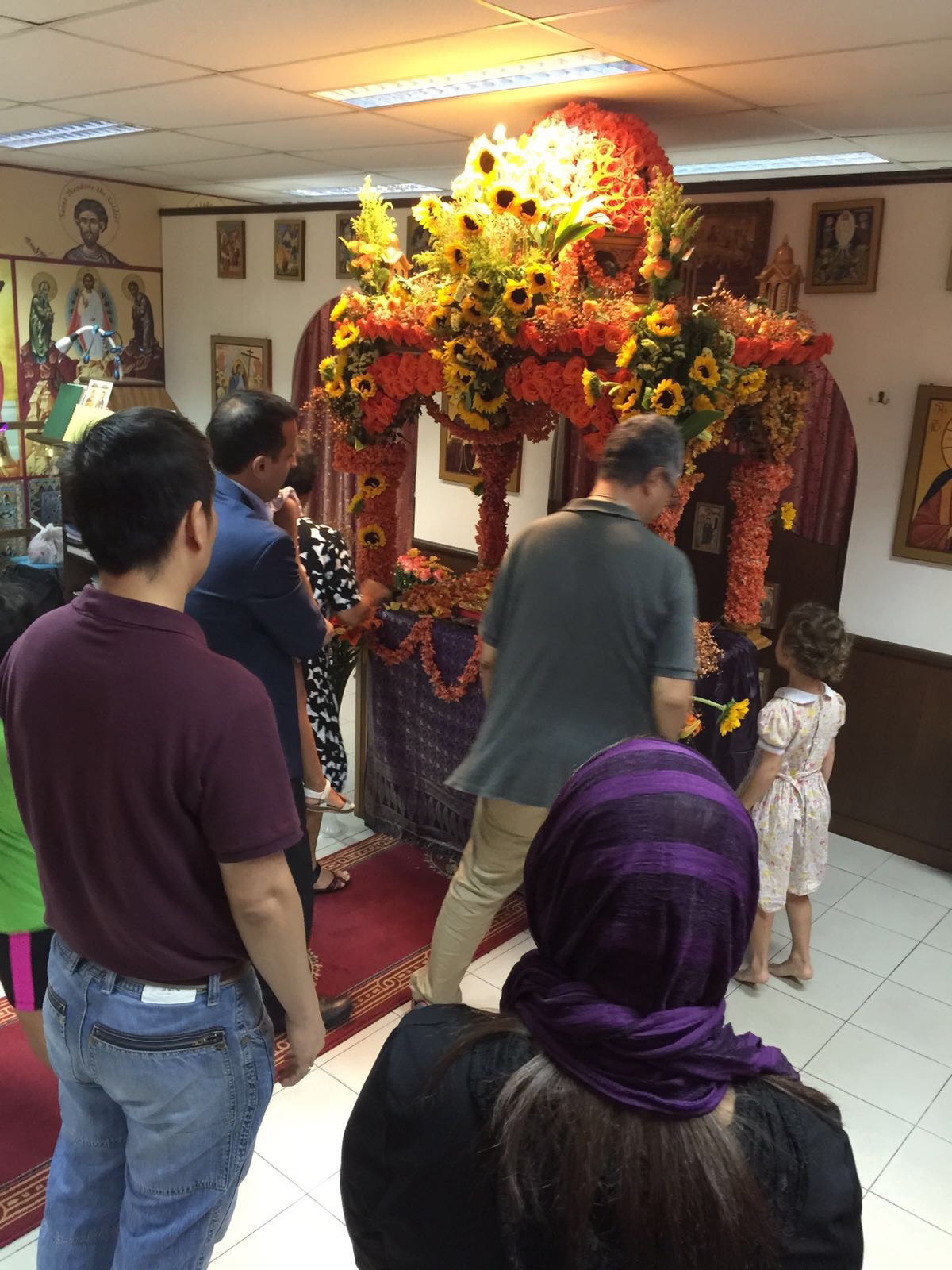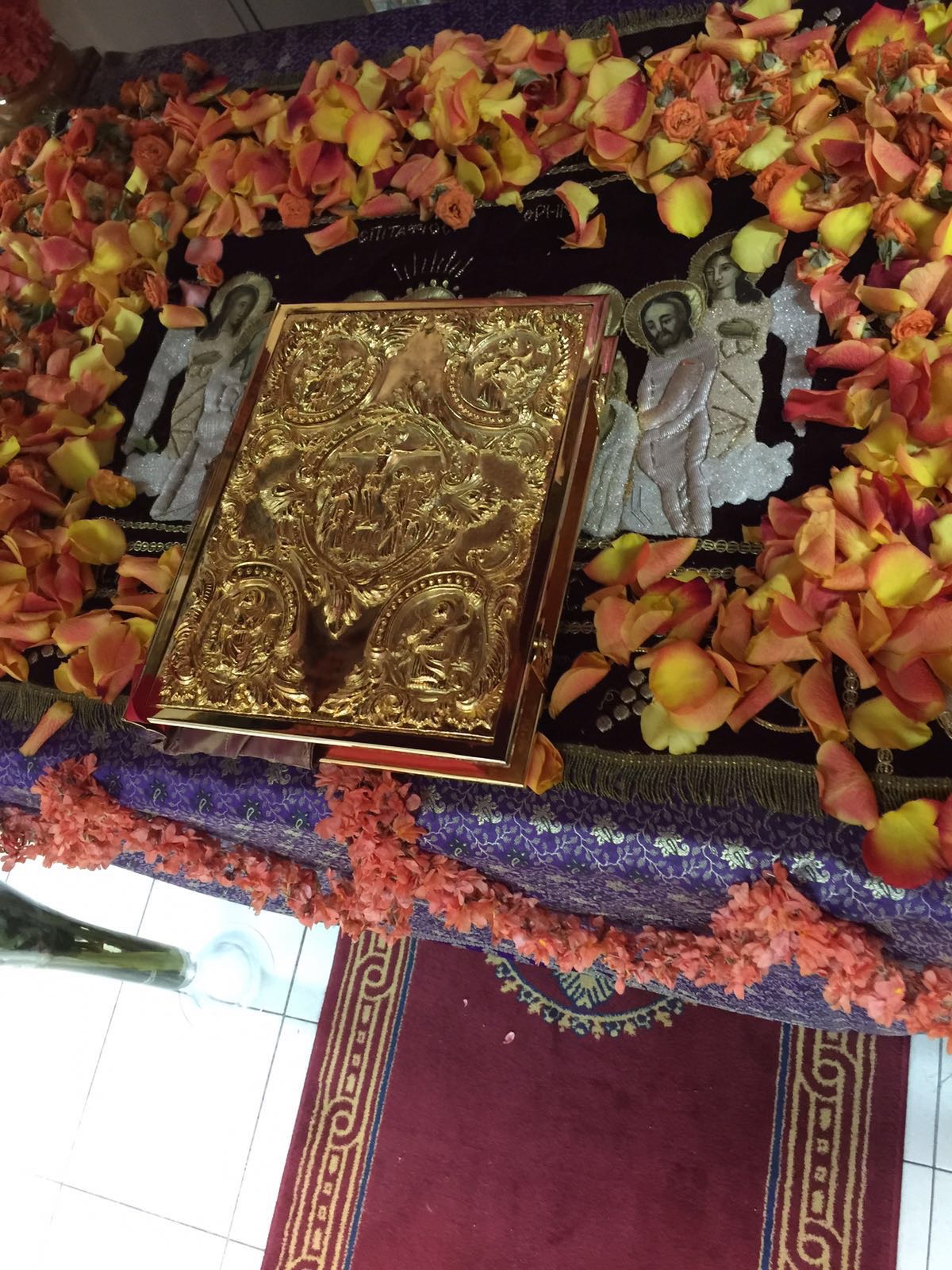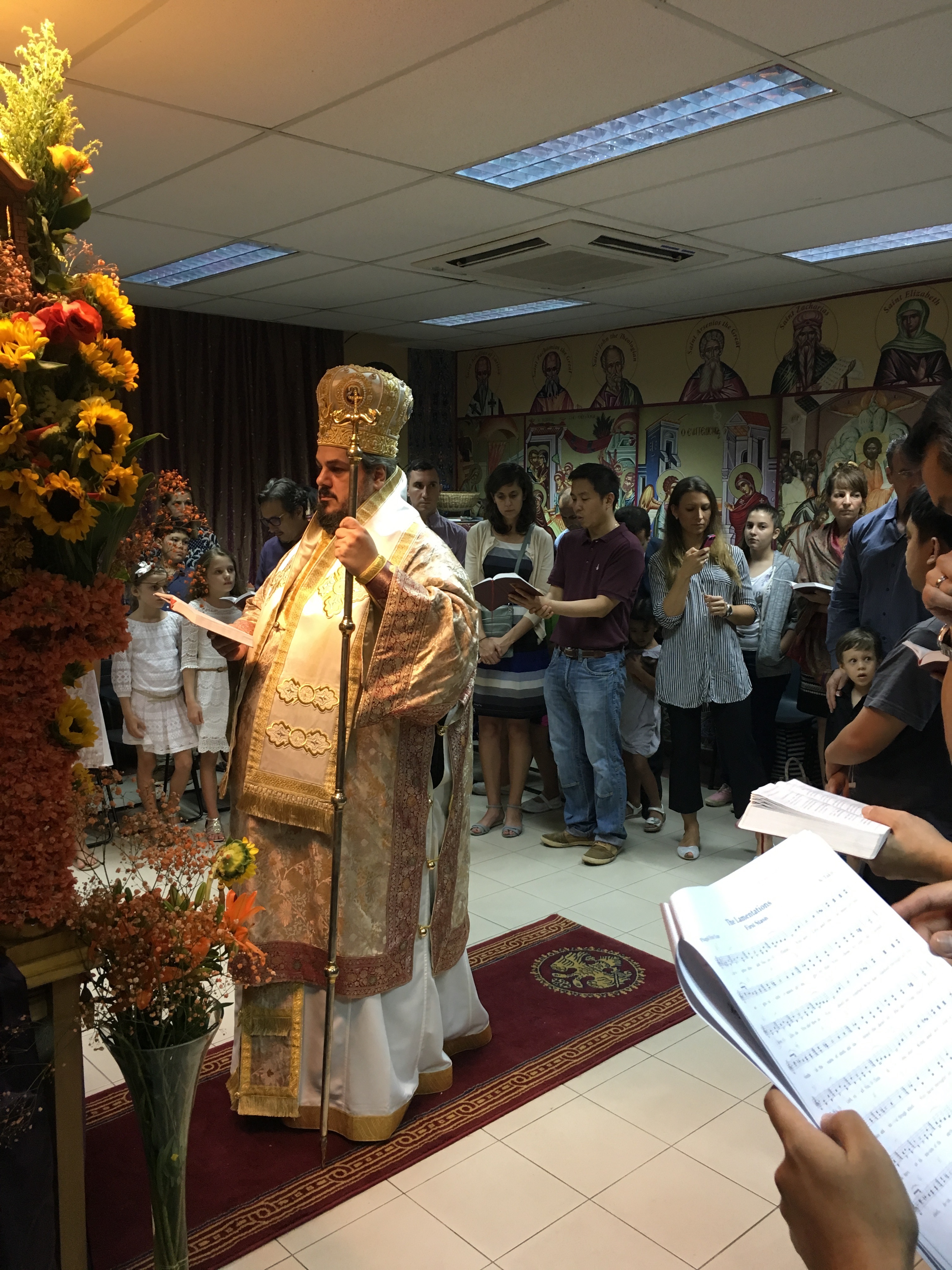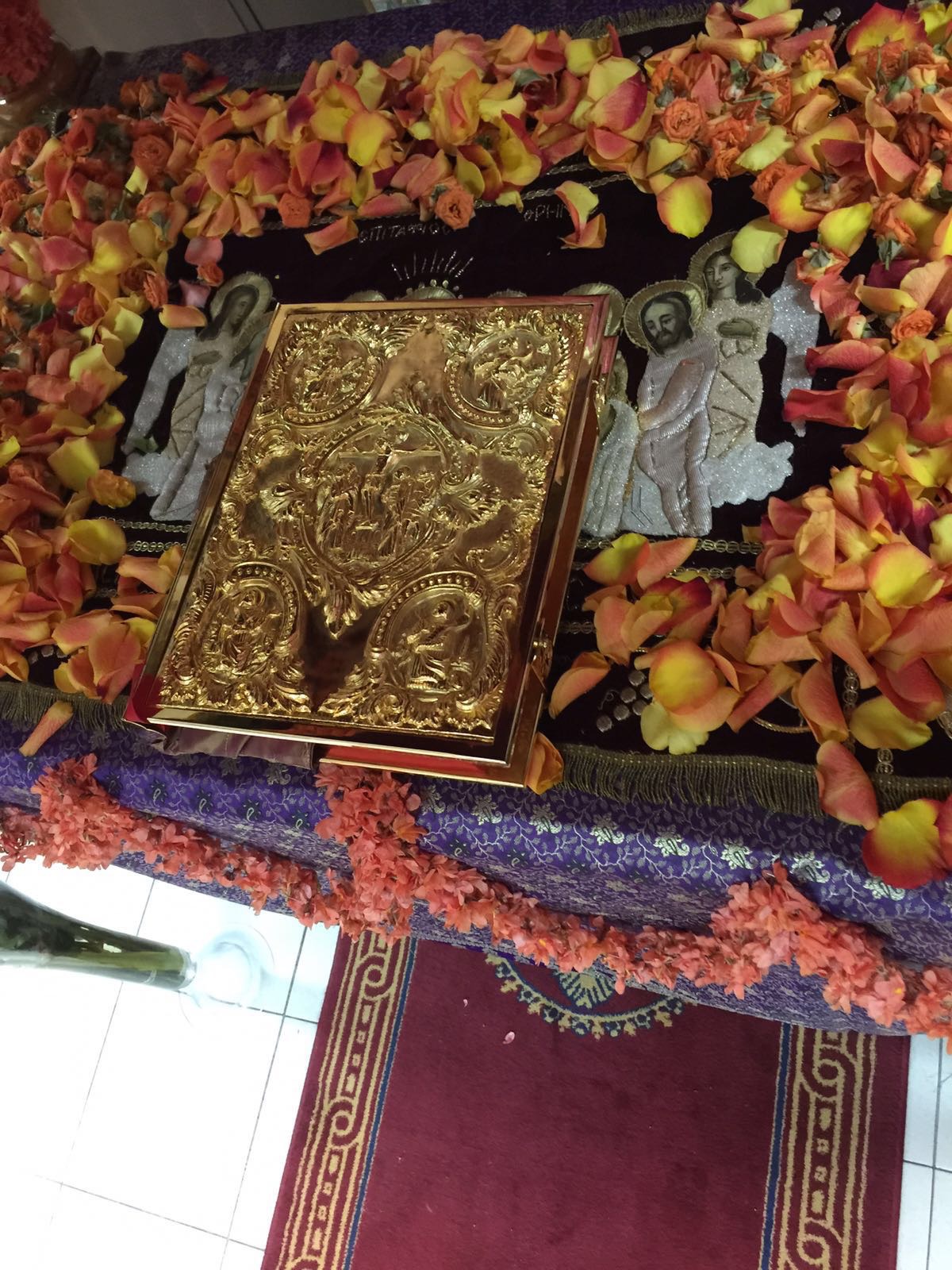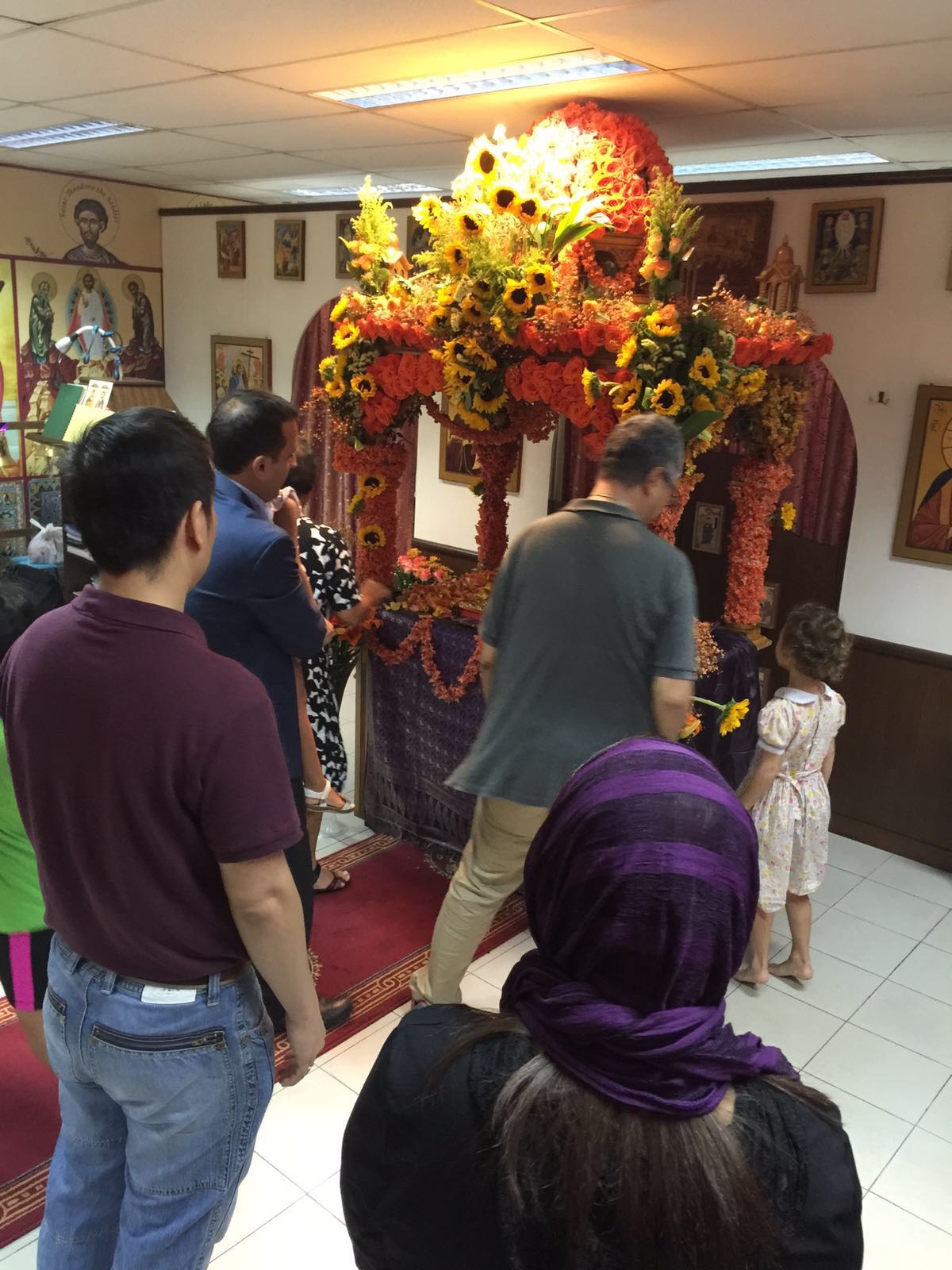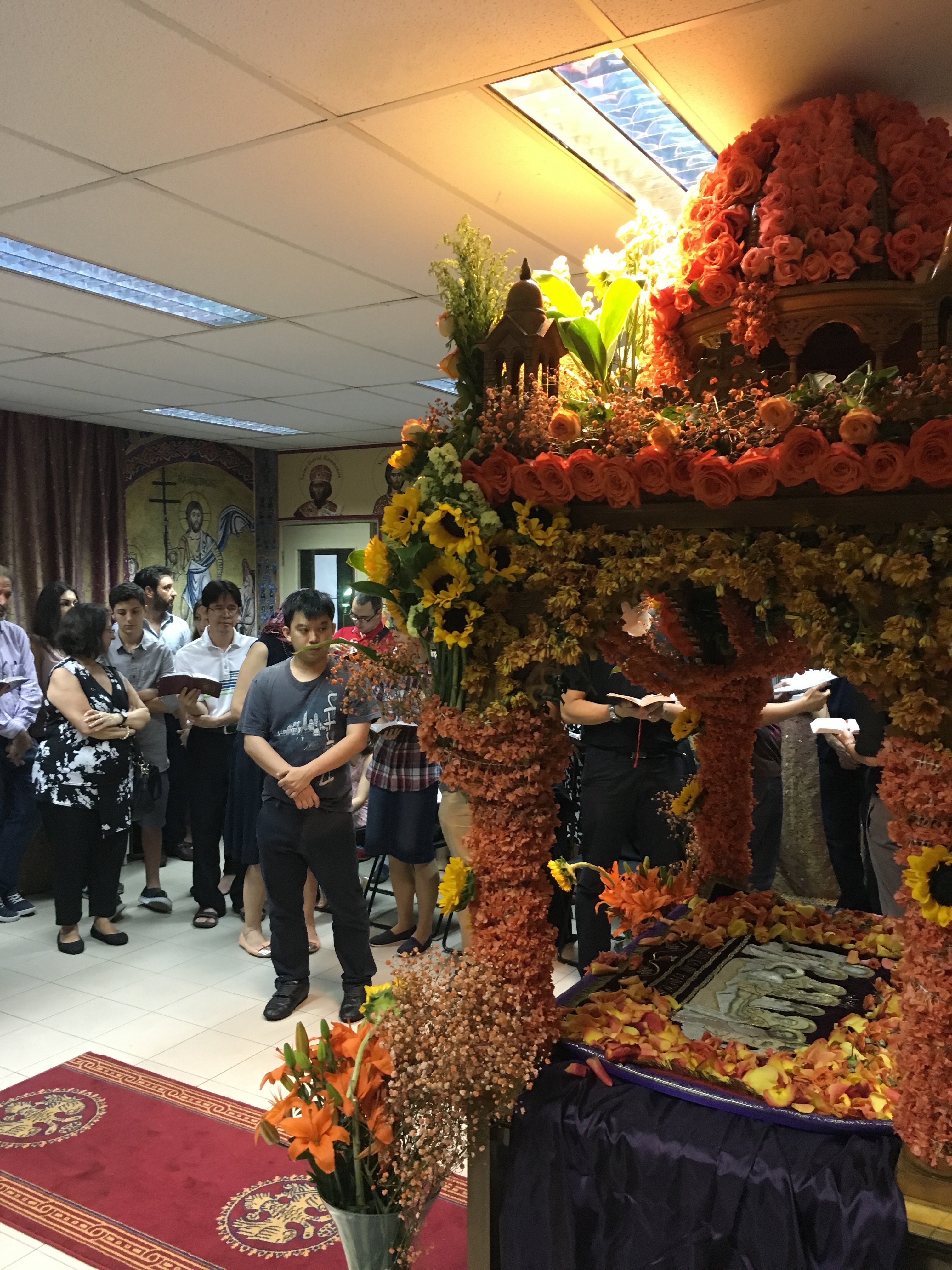The Matins of Holy Saturday are usually celebrated on Friday night. They begin in the normal way with the singing of God is the Lord, the troparion The Noble Joseph, and the following troparia:
When Thou didst descend to death 0 Life Immortal, Thou didst slay hell with the splendor of Thy Godhead! And when from the depths Thou didst raise the dead, all the powers of heaven cried out: O Giver of Life! Christ our God! Glory to Thee!
The angel standing by the grave cried out to the women: Myrrh is proper for the dead, but Christ has shown himself a stranger to corruption.
In place of the regular psalm reading the entire Psalm 119 is read with a verse praising the dead Saviour chanted between each of its lines. This particular psalm is the verbal icon of Jesus, the righteous man whose life is in the hands of God and who, therefore, cannot remain dead. The Praises, as the verses are called, glorify God as “the Resurrection and the Life,” and marvel at his humble condescension into death.
There is in the person of Jesus Christ the perfect unification of the perfect love of man toward God and the perfect love of God toward man. It is this divine human love which is contemplated and praised over the tomb of the Savior. As the reading progresses the Praises become shorter, and gradually more concentrated on the final victory of the Lord, thus coming to their proper conclusion:
I long for Thy salvation, 0 Lord, Thy law is my delight (Ps 119:174).
The mind is affrighted at Thy dread and strange burial.
Let me live, that I may praise Thee, and let Thy ordinances help me (119:175).
The women with spices came early at dawn to anoint Thee.
I have gone astray like a lost sheep, seek Thy servant, for I do not forget Thy commandments (119:176).
By Thy resurrection grant peace to the Church and salvation to Thy people!

